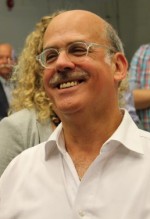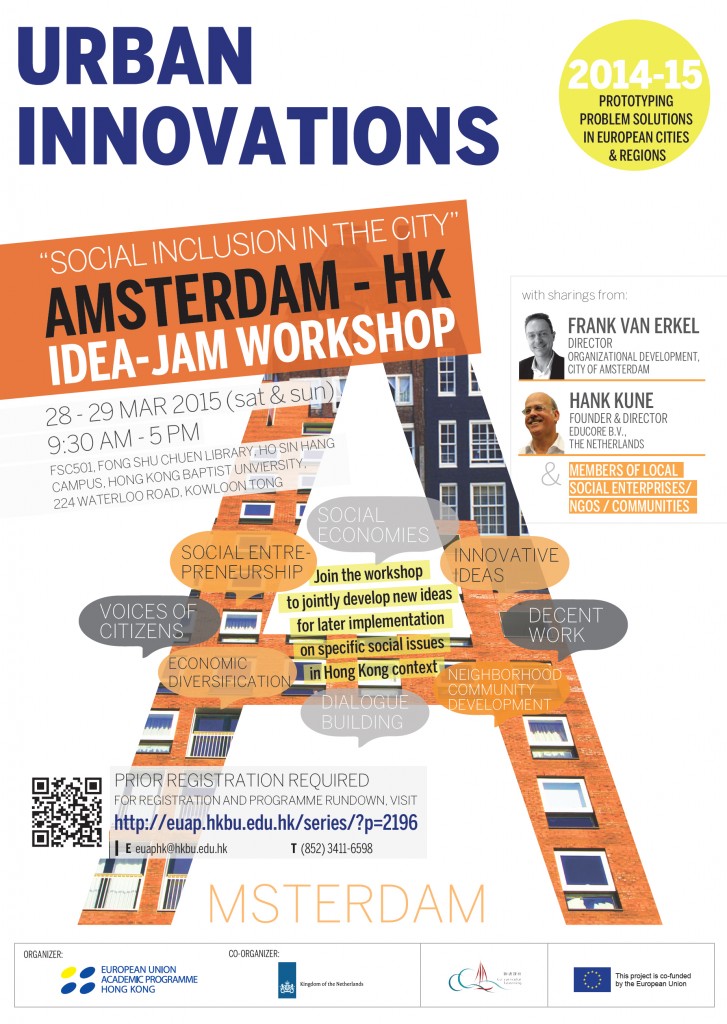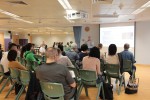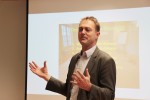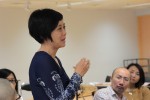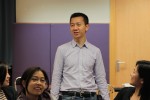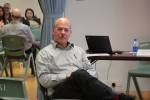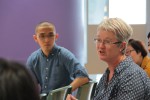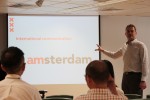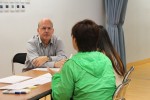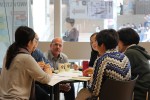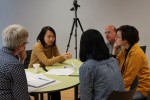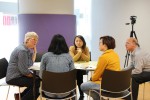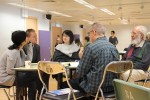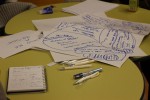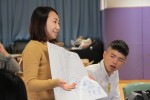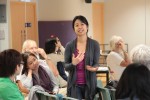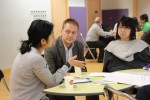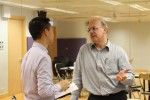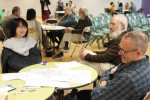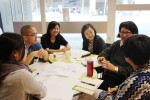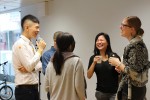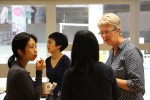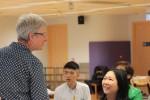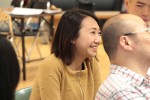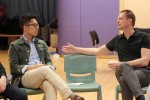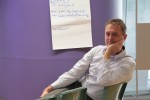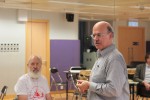Date/Time
Date(s): 28/03/2015 - 29/03/2015
Time: 9:30 am - 5:00 pm
Location
FSC501, Fong Shu Chuen Library, Ho Sin Hang Campus
Language: English
Admission: Registration required at the bottom of this page
Event Partner(s): This workshop is organized in cooperation with the Netherlands Consulate General in Hong Kong and Macao.
Speaker(s):Frank van Erkel (City of Amsterdam) & Hank Kune (Educore Amsterdam)
A 2-day Idea-Jam Workshop with
– Frank van Erkel (Director, Organizational Development, City of Amsterdam)
– Hank Kune (Founder & Director, Educore B.V., the Netherlands)
And members of local social enterprises, NGOs and communities
Themes:
– Social entrepreneurship
– Social inclusion of marginalized groups in society
– Hearing the voices of the citizens in neighborhood community development
– Innovations in social economies
Objective:
– To provide a platform for participants including both practitioners and interested individuals to discuss practical experience in Amsterdam and Hong Kong
– To jointly develop new ideas for later implementation on specific social issues in the Hong Kong context
– To establish a dialogue between Amsterdam and Hong Kong on the suggested themes which will therefore launch collaboration in the future
This workshop is free of charge and the number of participants is limited to 40. Participants are strongly advised to attend the sessions on both days. Applications will be accepted on a first-come-first-served basis and priority will be given to members of local social enterprises, NGOs, and academia of related fields, and those who can attend on both days.
Background:
Among the most pressing future challenges in Hong Kong are diversification of the economy and job creation, growing wealth inequalities, the lack of a comprehensive social security system, ensuing relative and absolute poverty especially among the low-skilled, and a rapidly ageing population, which will place substantial demands on resources for care for the elderly. At the same time, there is substantial growth among socially disadvantaged immigrant groups, in particular from Mainland China, which are seen as competitors for scarce social provisions.
Although the HK government, charity organizations and NGOs have established various schemes to help underprivileged groups, they are limited in scope. Moreover, Hong Kong is characterized by a top-down approach in public governance and urban problem solutions, leading to progressive polarization in society and politics. General public awareness of the underlying development trends and involvement in community affairs, even at neighborhood level, are relatively low.
At the same time, major issues like structural economic change and economic diversification and the development of comprehensive ‘smart city’ strategies have not received due attention in Hong Kong. At the very least, public discussion and dialogue between government and citizens have so far been insufficient.
We are aware that the city of Amsterdam has been coping with such challenges for many years, both in its inner-city core (tourism, creative economy, smart city solutions) and districts like Amsterdam East and South (social affairs, collaborative & participatory approaches to urban problem solutions). East Amsterdam has turned into a multicultural neighborhood since 1960s with the inflow of immigrants from Turkey, Morocco and Suriname, artists and students. However, due to the lack of infrastructure in East Amsterdam in 1980s, a lot of low-rent or even empty apartment blocks attracted drug addicts and homeless people. It happened especially in the area of Bijlmer. The neighborhood was soon labeled unsafe and dirty and by 1996 the unemployment rate was nearly twice as high as in Amsterdam as a whole, and crime rates were – and still are – among the highest in Amsterdam. Educational levels in the Bijlmer are lower than in Amsterdam as a whole. The social problems vary within areas such as health, poverty, social exclusion, unemployment and safety.
Under these challenges, there has been a concerted effort by local government in recent years to increase investment in social, urban and economic issues.
With the emergence of different new business, cultural facilities and social groups, East Amsterdam is experiencing a transformation from a disinteresting region to a intercultural and dynamic region.
This transformation needs a lot of effort to include residents with different talents and cultural background back to the community.
A recent EU study ranked Amsterdam in the best-performing group of ‘smart cities’ in Europe, not the least due to its contribution to the EU’s ‘Strategy 2020’ and its characteristic ‘bottom-up-approach’ to encourage citizens’ participation in urban planning and development[1].
An idea Jam workshop with input from Hong Kong and Amsterdam would help stimulate innovative solution to the problems in Hong Kong.
[1] ‘Mapping Smart Cities in the EU’ (2014), pp. 68, 77-78, 143-147
Draft programme based on several assumptions:
- Active and creative participation instead of listening to presentations
- Activities based on interactive and participative work processes as used in Amsterdam
- Producing a practical and usable output at the end of the second day
- Two full work days: approximately 6 hours hands-on working each day, plus a lunch-break = approx. 7 hours per day.
- Distributed moments for providing insight in Amsterdam mini-cases (to encourage people to satay for the full two days)
Speakers:
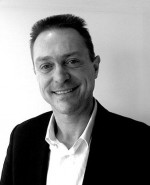 Frank van Erkel
Frank van Erkel
Rundown (All times and timing are approximate):
| Saturday | |
| 09.30 | Introduction to the Idea Jam, the working method, the facilitators & participants |
| 10.00 | Inspiration from Amsterdam-1 (mini-cases about social entrepreneurship) |
| 10.45 | What is happening in Hong Kong (short mini-cases from Hong Kong) |
| 11.15 | IDEA JAMMING: collecting best innovative ideas from participants |
| 12.30 | LUNCH |
| 13.15 | Conversations with partners and groups |
| 14.00 | Groups co-create promising ideas |
| 15.30 | Inspiration from Amsterdam-2 (mini-cases Amsterdam innovation processes) |
| 16.00 | Inter-group consultation & feedback |
| 17.00 | Looking forward to tomorrow |
| Sunday | |
| 09.30 | Introduction to Day 2 |
| 09.45 | Groups further develop their best ideas |
| 11.00 | Mini-presentations from Groups |
| 11.25 | How would Amsterdam do it?Mini-presentations illustrating Dutch innovation process-thinking |
| 11.45 | Prototyping activities for Hong Kong |
| 12.30 | LUNCH |
| 13.15 | From Obstacles to Opportunities |
| 14.00 | Inspiration from Amsterdam-3 (mini-cases social inclusion) |
| 14.30 | Circles of Influence |
| 15.15 | The intention: Hong Kong in 4 years |
| 15.45 | The reality: Hong Kong in 1 year |
| 16.15 | Visualization of ideas and prototypes |
| 17.00 | Looking forward |
Download the Programme of Idea-jam workshop in pdf format
Event Poster:
Directions
Photo Album
ENQUIRIES
Martin Ho
Programme Coordinator
3411-6599
martintcho@hkbu.edu.hk
Bookings
Bookings are closed for this event.

![[2-day Idea-Jam Workshop] Social Inclusion in the City - Amsterdam-HK Idea-Jam Workshop](http://euap.hkbu.edu.hk/series/wp-content/uploads/2015/04/2015032829-Idea-jam-workshop-12.jpg)
